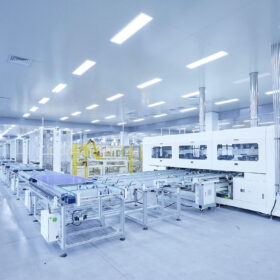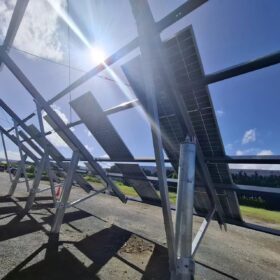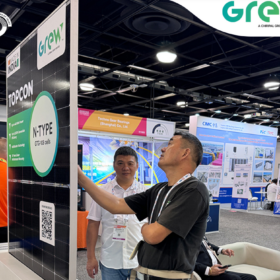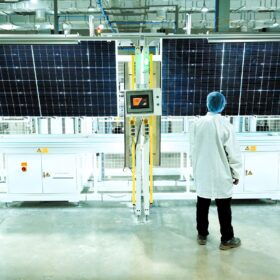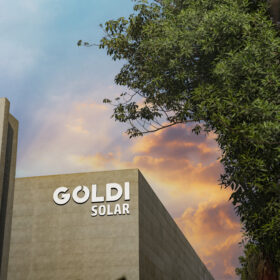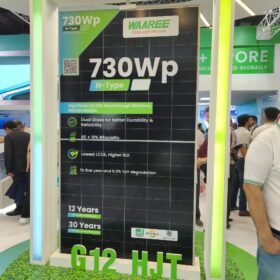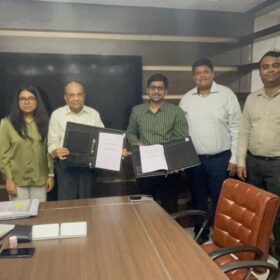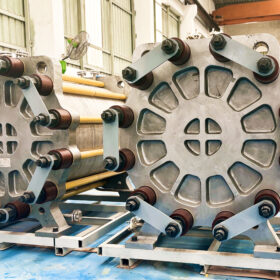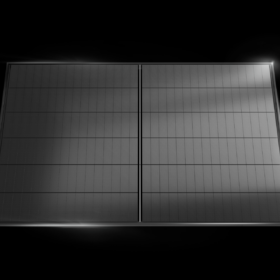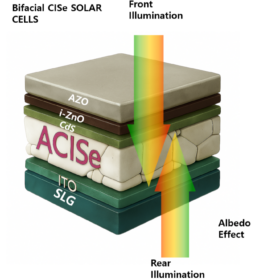Solving the UV problem of n-type solar
Laboratory testing has revealed that some negatively-doped, “n-type” tunnel oxide passivated contact (TOPCon) and heterojunction (HJT) solar modules are susceptible to ultraviolet (UV) light-related damage and degradation. That could mean trouble down the line, if modules in the field begin to show UV-related performance loss. Manufacturers are implementing solutions at cell and module level.
JinkoSolar, Trina say TOPCon modules outperform p-type back-contact panels
JinkoSolar and Trina Solar have separately reported that on-field testing shows tunnel oxide passivated contact (TOPCon) solar modules outperform p-type back-contact PV modules in monthly power generation.
Japan’s Toyo plans 2 GW solar cell factory in Ethiopia
Tokyo-based Toyo Co. says it will invest $60 million in a new 2 GW solar cell factory in Ethiopia, to mostly serve the US market.
Key takeaways from Renewable Energy India Expo 2024
Solar module manufacturers are quickly ramping up to multi gigawatt-scale capacity to tap the domestic demand. At technology level, TOPCon modules based on 210 rectangular silicon wafer (G12R) cell are taking center stage.
Rayzon Solar ramping up module manufacturing capacity to 12 GW by September next year
Rayzon Solar, which currently has 4 GW PV panel manufacturing capacity, will add 3 GW by December and a further 5 GW by September next year to reach a cumulative module capacity of 12 GW per year. The company will also build a 1.2 GW cell line by the end of 2025.
The solar industry’s freefall: A price war with no end in sight?
The future of the solar industry hangs in the balance as manufacturers, regulators, and market players grapple with a perfect storm of falling prices, rising costs, and a fiercely competitive global landscape.
Will Indian solar manufacturers go back-contact to the future?
Indian PV manufacturers are looking beyond tunnel oxide passivated contact (TOPCon) solar. Back-contact (BC) devices are an enticing prospect but many feel the technology is not mature enough. Uma Gupta considers the cost, yield, and reliability challenges that BC solar has to overcome.
New research shows vulnerability of TOPCon solar cells to contact corrosion
Researchers at the University of New South Wales claim to have identified new TOPCon contact degradation mechanisms that are significantly influenced by the combination of ions and aluminum-silver paste compositions. The primary degradation mechanism was a significant increase in series resistance.
Goldi Solar to start PV cell production from mid-2025
Goldi Solar is entering PV cell production with the setting up of 4 GW per year manufacturing capacity. The company is also ramping up its module capacity to 14 GW by Dec. 2025, from 3 GW at present.
Waaree unveils 730 Wp HJT dual-glass solar module
Waaree has showcased n-type HJT dual-glass module providing an output of 730 Wp with up to 23.5% efficiency.
